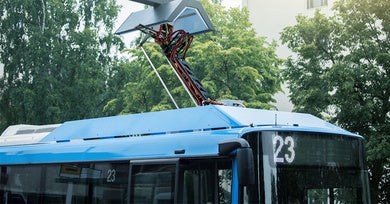IDB World: ChatGPT, Maritime Transport, Trans Rights
We present three blog posts from the IDB Group on the power of ChatGPT to develop public policies, maritime transport and access to housing for the trans collective.

IDB World: Transportation Platforms, Inclusive & Resilient Housing Solutions, AI Testing
We present three selected IDB Group blog posts on transportation platforms, inclusive & resilient solutions for the housing deficit and AI testing.

Electric Buses Roll Out Challenges and Opportunities for Latin America and the Caribbean
Policy makers are aware of the importance of cutting down on CO2, manufacturers are rolling over new electric buses and private sector investors have appetite to invest in this sector, as demonstrated by recent tenders in Bogotá and Santiago. But there are still road-blocks ahead of a massive roll-out of electric buses.

Latin America & the Caribbean Has a Truck Problem, But the Solution is on its Way
The region's trucking industry is gigantic, and inefficient, with shippers struggling to find available trucks and carriers struggling with driver security and limited working capital. The potential for tech disruption is clear, and startups are filling the void with online marketplaces.

Here’s one example of how Big Data helps transportation in our region
Waze helps us navigate traffic and save precious time. In partnership with the IDB Group, it’s also helping to measure the impact of transport projects and solve related challenges in Latin America and the Caribbean.

Latin-America and the Caribbean are surfing the ride-hailing wave
Remember what trying to get a cab used to be like? Not long ago, you would have to step into the street, wave your arm in hopes of being noticed and sometimes wrestle another would-be passenger for the coveted spot. And that was only the beginning. At times, cab drivers took you down the “tourist route,” or simply got lost finding their way. At pay time, it was a matter of luck for you to have cash or for a driver to have change.